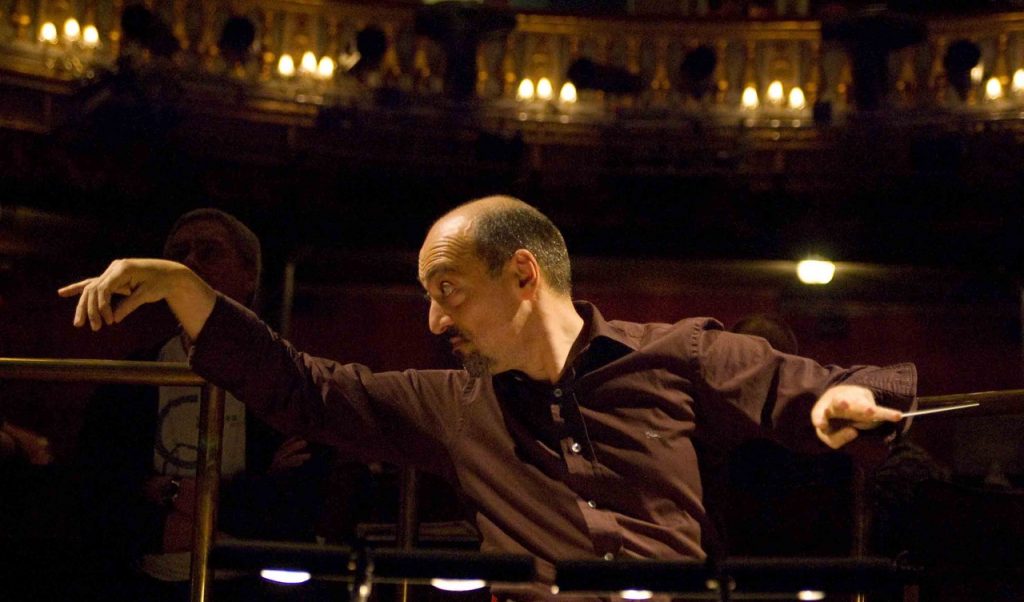
In a few days, Theresia is going to take part to the performance of the opera “Le astuzie femminili” (Female Shrewdness) by Domenico Cimarosa as part of Reate Festival: a great chance of experiencing the staging of an opera under the baton of one of the major expert of this repertoire, Alessandro De Marchi. We met him and asked him to share with the blog some details of the project.
Maestro De Marchi, you are going to conduct Theresia in the staging of “Le astuzie femminili” by Domenico Cimarosa: what can you tell us about this opera?
When we come to Cimarosa, we are dealing with one of the best opera composers of the XVII century: he was a major exponent of the Neapolitan school, and his career was divided between more than one city: precisely he worked in Naples, Vienna and Saint Petersburg. He was an international composer, and it is very interesting that while composing this very opera, he used part of works written in Saint Petersburg and Vienna, in that giving us a summa of his international activity.
Le Astuzie Femminili is a comic opera, written for the Teatro dei Fiorentini just after his most famous opera, Il Matrimonio Segreto. Speaking of which, I like to remember that Il Matrimonio Segreto is the only opera in the history of classical music that was performed again, as an “encore” at the end of the first performance in Vienna: this was the grade of Cimarosa’s success! Le Astuzie Femminili and Il Matrimonio Segreto have a lot of things in common, as it normally happens when it comes to comic opera. And, the cast that performed the “prima” was the same, formed by professionals, specialized in this sort of roles.
Which are the peculiarities of the libretto?
The original libretto had been written in Vienna by a renowned poet, Giovanni Bertati. It was then adapted and partly translated into Neapolitan by Palomba. As a matter of fact, Italian is not the only language of this opera: we have one of the characters (Giampaolo Lasagna) singing in the Neapolitan dialect, and we can also hear a macaronic German when the two main characters disguise themselves as soldiers and pretend to speak German: it is a botched gibberish, totally funny especially when the Neapolitan character tries to answer as he can. And we enjoy enormously the fact that Bellina and Filandro, the two amorous roles, get to be comical.
How is Cimarosa’s style, and how does he deal with a series of long-established comical situations?
Cimarosa’s style is something in between Mozart and Rossini: as a matter of fact, his style is very personal, and, as though it is mostly comical, it has some very lyrical moments. This is an opera you can’t help but fall in love with, and this is what is happening to us right us. The plot indeed follows a series of comical stereotypes, but Cimarosa had unique ease in transforming the text into music and his best peculiarity is a vein of melancholy that pops out also in the most comical situation: it is the authentic Neapolitan sense of comic that in the XX century the theatre companies of Scarpetta and De Filippo have entirely inherited.
Have you already worked with the singers involved? How is the cast?
I have worked several times with Eleonora Bellocci, who will be Bellina, the main female character, and I know very well Rocco Cavalluzzi, the bass performing Don Giovanni Lasagna. The other members of the cast are young singers that won the competition organized by Reate Festival: the level is very high and this is going to be an unforgettable experience for Theresia’s musicians, as always is the making of an opera.
Working with the youth is essential in your musical activity: you have also founded an International Vocal competition, the Cesti Competition, set in Innsbruck.
Starting the vocal competition was one of the first thing I did when I was nominated artistic director of the Innsbruck Festival For Early Music: I wanted to fill a gap, because at the time there were a series of baroque singing competitions, but not even one devoted to the opera. It was a winning formula, and in very little time has become a point of reference, with hundreds of applications. They are so many that we must select the candidates on the basis of a video, and we have a really high level in the final stage of the competition.
One of the strength of the Cesti Competition is that the Jury is made of professionals working in the world of opera production: artistic directors, stage managers, casting directors… so that taking part in the competition is like having multiple auditions in some of the main theatres around the world, and this represents a great chance for young talented singers. And, in fact, we have seen bright careers that were born among us.
Theresia was at Cesti a couple of years ago: what do you like of this orchestra and of its philosophy?
Theresia was the orchestra accompanying the finalists of the 2020 edition and came back for the staging of the Boris Goudenow the year after. I really admire this orchestra and I like the project, especially the idea of offering training paths that bring to a truly professional experience. And, most importantly, this project is in very competent and capable hands, so I see a bright future.


